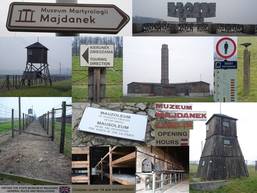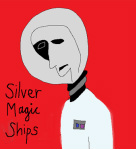
The motivations for taking such journeys vary. Travelling to a site of genocide is, for many, a pilgrimage - part of a duty of remembrance and a hope that we might learn from the past to avoid making the same mistakes in the present. Others, however, visit places of death for reasons that are far more prurient. Some people gain positive pleasure and excited curiosity from the pain and suffering of others.
Steps therefore need to be taken to discourage this from happening: to prevent "black spots" (Rojek 1999) of the wrong sort from appearing on the tourist map (1). This explains the decision by Gloucester City Council to purchase a house - and immediately demolish it. The property in question - 25 Cromwell Street - was once the home of Frederick and Rosemary West. They killed women and girls there and hid the bodies around the house and in the garden. The local council saw to it that everything connected with this place of murder was ground to dust. The site was then covered in concrete. These steps were taken in order to stop the relics becoming grisly commodities to be bought and sold by collectors of the macabre (Moyes 1996).
I was reminded of this after reading that the cellar of Josef Fritzl's house is to be pumped with concrete. This should ensure that the place where his daughter was imprisoned can never again be entered. It seems, however, that no decision has been reached regarding the house, which still stands in the Lower Austrian town of Amstetten (AP 2011).
The decision to entomb the Fritzls' cellar might not prevent it from being reopened in the future. Years from now public attitudes could allow it to be carefully restored and made accessible to curious tourists. There is a precedent for this, albeit one that has absolutely nothing whatsoever to do with dark tourism: Eidsvoll is a famous tourist attraction in Norway due to its connection with the drawing up of the Norwegian constitution in 1814. In the latter part of the 19th century the cellar of the building was destroyed. It is now being restored ("recreated" might be a better word) in time for the bicentenary of 2014. Some have condemned this decision, arguing that the construction of a "fake" cellar will turn Eidsvoll into "democracy's Disneyland" (Engen 2011).
Norway, of course, is currently trying to come to terms with the terrorist attacks of 22 July that left 77 people dead. The sites of these killings plus all manner of places associated with the terrorist responsible provide fertile ground for dark tourism.
For a final reflection on some of these issues, let's mentally return to Fritzl's cellar. The decision to fill it with concrete is counterproductive. Its transformation has turned it in to an artwork akin to Rachel Whiteread's House (1993). This now-demolished project centred on 193 Grove Road, a regular end-of-terrace Victorian-era house in the East London borough of Tower Hamlets. Whiteread filled the interior with flowcrete. The bricks and roof were then painstakingly removed to reveal the uncanny inside-out home.
Even closer to the Fritzl "readymade" is Harald Persson's Nedgrävning (Burial). This was the name given to an art project carried out in November 1994. The Swedish artist dug a hole in Picasso Park in Halmstad and buried a white, one metre cubed block of concrete. This event was largely forgotten, until a couple of years ago when it was included in an art guide to the town. Tourists can now visit the site... and see nothing at all. This is probably exactly what happens at the now-vanished 25 Cromwell Street in Gloucester and the sealed-up cellar of the Fritzl house in Amstetten.
_________
(1) This raises some vexing questions. Is it possible to distinguish between "good" and "bad" dark tourism? What is the "wrong" sort of dark tourist or the "wrong" sort of "black spot"? Or is appropriateness determined by the motivations of the visitor and the nature of the interpretation? If so, can anything become a visitor attraction?
_________
References
AP (2011) "Josef Fritzl basement to be filled with concrete", Associated Press, 12/08, accessed 26/08/2011 at,
http://www.guardian.co.uk/world/2011/aug/12/fritzl-basement-filled-concrete
Engen, Øyvind Bosnes (2011) "Falsk historie om 1814", Romerikes Blad, 18/05, accessed 26/08/2011 at,
http://www.rb.no/lokal_kultur/article5611181.ece
Lingwood, James (ed.) (1995) House, London: Phaidon
Moyes, Jojo (1996) "Fred West house to be demolished", Independent, 05/10, accessed 26/08/2011 at,
http://www.independent.co.uk/news/fred-west-house-to-be-demolished-1356745.html
Persson, Harald (1994/2011) Nedgrävning. Fotografisk documentation (photographs by Joacim Bengtsson), Stockholm
Rojek, Chris (1999) "Fatal Attractions" in Boswell, D. and Evans, J. (eds.) Representing the Nation:
Histories, Heritage and Museums, London: Routledge, pp. 185-207
Seaton, A.V. (1996) "Guided by the dark: from thanatopsis to thanatourism", International Journal of Heritage Studies,
Vol. 2, No. 4, pp. 234-244
Stanton Scott (2003) The Tombstone Tourist: Musicians, New York: Pocket Books





